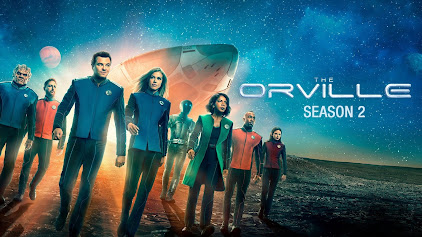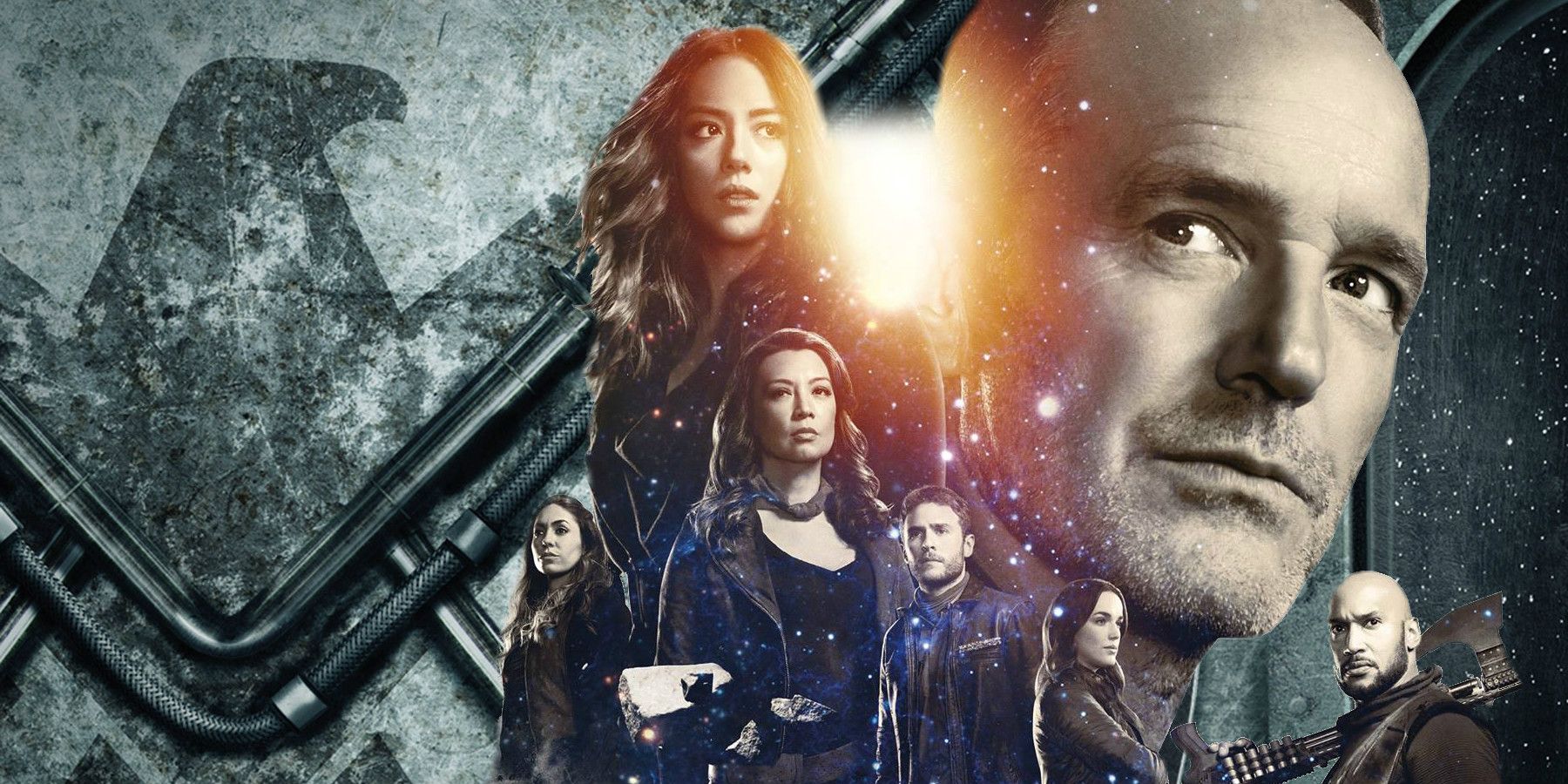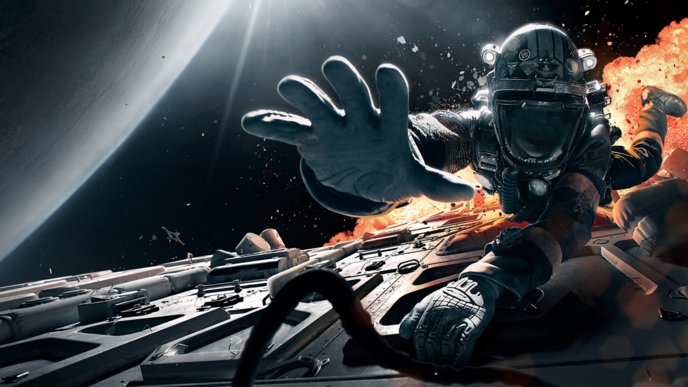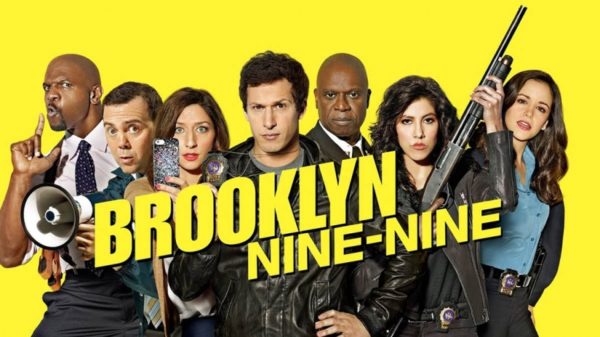In 1991 Joss Whedon was a 27-year-old scriptwriter, regularly writing for the American sitcoms Roseanne
and Parenthood. He’d gained some
attention for his work, enough to get 20th Century Fox to take a
look at a film script he’d been tooling around with for a while.
The script had developed from an image Whedon had been
struck by whilst watching yet another clichéd horror movie about a monster that kills girls. In Whedon's idea a monster stalks a
young teenage girl into a dark alley, only for the girl to turn around and kill
the monster. This idea went through several permutations – one called “Rhonda
the Immortal Waitress” gaining some traction before Whedon mercifully ditched
it – before it finally hit the page. Whedon sold his script, now immortally
called Buffy the Vampire Slayer, in
the autumn of 1991 to Sandollar, Dolly Parton’s development studio.

The film was released on 31 July 1992 with a reasonably good cast. Young up-and-comers Kristy Swanson and Luke Perry starred and old hands
Rutger Hauer and Donald Sutherland provided strong support. The film was a very
modest success, taking home $13 million from an $8 million budget, and a minor
cult hit on home video. Joss Whedon was less than impressed, however: his original
script had garnered a lot of good notices in the trade but the rewrites for the
film had removed a lot of the darker edges, metaphors and themes, reducing the
film to a broad comedy. Whedon had his first (but not last) taste of what it
was to be “Hollywoodised”.
Whedon then spent several years working in development hell
in Hollywood, mainly as a script doctor and re-writer. It was his work on the
hit movies Twister, Speed and especially Toy Story which raised his profile and
saw him being eagerly sought out for higher-profile work, including a draft of
the in-development fourth Alien
movie (which did not end so well). Sandollar
decided to come back to Whedon and suggest re-tooling the Buffy character in a
new format, for television, and this time Whedon would have complete creative
control and final say over the result.
Whedon, surprisingly, agreed. In the mid-1990s it was
unusual for someone with a burgeoning career in Hollywood to switch from film
to television. But Whedon had become frustrated with the constant rewrites in
film and his words being frequently deleted and replaced with someone else's material. In television Whedon realised he could have the final say, the
final cut and grow his skills, branching out as a director and producer as well as a writer.
Nicholas Brendon, Sarah Michelle Gellar and Riff Regan as Xander, Buffy and Willow in the unaired Buffy pilot.
Sandollar and Whedon produced a 25-minute non-broadcast
pilot. Whedon scored several major casting coups, recruiting Sarah Michelle
Gellar - fresh off a popular run on the soap opera All My Children - in the title role of Buffy and Charisma Carpenter
from the ill-fated Malibu Shores as
her sometimes-nemesis Cordelia. Anthony Stewart Head, famous in both the UK and
USA for his long-running stint on a popular series of coffee adverts (Nescafe
in the UK, Taster’s Choice in the US), was cast as Rupert Giles, Buffy’s
mentor. Relative newcomer Nicholas Brendon was cast as Xander. Mercedes McNab,
Danny Strong and Julie Benz was cast in minor, almost background, roles, but
all three would not only return for the series proper but go on to become major
characters in later years.
Also debuting in the pilot, after some very minor background
roles, was David Boreanaz. Boreanaz’s neighbour had penned him as brooding
vampire-type and pointed this out to Marti Noxon, a producer on the pilot, who
quickly snapped him up.
Completing the cast on the pilot was Riff Regan, who was
tapped to play the role of the nerdy Willow Rosenberg. For once Whedon’s
casting-fu failed him and Regan turned out to be too inexperienced, fluffing
her lines and suffering from a serious case of the nerves.
Still, the pilot did its job. Fox agreed to produce the show
and the WB were impressed enough to broadcast it. But only after changes were
made and another show was cancelled early to make room for it.
Buffy the Vampire
Slayer entered production in the summer of 1996. It was initially picked up
as a 12-episode mid-season replacement, allowing Whedon to write quite a tight
story arc, pitching Buffy into battle against the villainous Master.
Surprisingly, almost the entire cast survived from the pilot to the show. The
only major change was the character of Willow, with Riff Regan ejected in
favour of Alyson Hannigan. Hannigan’s career was already in the ascendant,
following her role on the movie My
Stepmother is an Alien (with future Buffy
co-star Seth Green) and a steady series of guest star gigs on shows such as Roseanne, Touched by an Angel and Picket
Fences.
With the classic cast established, Buffy the Vampire Slayer finally debuted on television on 10 March
1997.
Joss Whedon directing David Boreanaz and Sarah Michelle Gellar.
The Premise
16-year-old Buffy Summers discovers she is “The Slayer”, a
chosen one who must stand against the darkness, the demons and especially the
vampires that threaten the world by night. She is aided and advised in her
mission by the Watchers Council, learned men and women who have accumulated
vast amounts of knowledge about the supernatural. Fleeing her destiny, Buffy
relocates to Sunnydale, California in the hope of pursuing a normal life at a
new school. However, she is soon found by the Watchers who send Rupert Giles to
act as her advisor. To her horror, Buffy learns that Sunnydale is built on top
of a Hellmouth, a “thin” point between this world and the hell dimensions that
lie beyond, and evil is drawn to the town like moths to a flame. Reluctantly,
Buffy embraces her new role.
The High School Horror
Story
The first season of Buffy
the Vampire Slayer picked up strong reviews almost from the off (although in retrospect the show took most of the first year to find its feet). The cast
was given a lot of credit, but the writing was also given a lot of attention
for its sharp one-liners and its clever use of the horror elements as metaphors
for the often-uncomfortable process of going through high school and growing up.
Potential clichés, such as Buffy’s ironic romantic relationship with vampire
Angel, were treated with greater seriousness and respect than was first
expected. There were also moments of genuine horror, such as Buffy
inadvertently sticking her hands in someone’s detached brain and a little boy
being turned into a vampire by the evil Master, but also comedy,
such as a sentient puppet that is presumed to be evil, but just turns out to be
a bit of a pervert.
The show was also praised for its tight serialisation.
Whedon wanted each episode to stand alone with its main plot (using the device
of the “Hellmouth” to explain why evil creatures were showing up in the
fictional town of Sunnydale every week) but to develop ongoing storylines with
its subplots, which occasionally moved to the fore (most notably in the episode
Angel, which reveals the backstory of
David Boreanaz’s tortured vampire character). In the Season 1 finale, Buffy
kills the Master but only at the cost of her own life before she is
resuscitated. Whedon’s use of serialisation was influenced by his childhood in
the UK, watching the likes of Doctor Who
and Blake’s 7, but it was also
seemingly inspired by the space opera show Babylon
5: Whedon smuggled several references to that show into Buffy, with Xander revealed as a major
fan. J. Michael Straczynski, the writer-producer of Babylon 5 (and more recently Sense8
on Netflix), gave Buffy the
thumbs-up as one of his own favourite shows.
The first season was left open-ended, although with enough
closure so fans wouldn’t suffer too much if it was cancelled. However, the
combination of reasonable ratings, critical acclaim and its personable and
attractive young cast (who quickly pushed the stars of The X-Files off the front covers of the magazines they’d been dominating for two years) meant it was a no-brainer for the WB to commission a second
series, this time a full-season run of 22 episodes.
Juliet Landau and James Marsters as Drusilla and Spike.
Hitting Buffy Where
She Lived
The second season of Buffy
opens in a similar vein to the first, until just three episodes in when punk-loving British vampire Spike (riffing on Sid Vicious) arrives in town with his
crazy-whimsical girlfriend Drusilla. Brutally dispatching the child-vampire known
as the Anointed One and debuting in an episode directly based in the movie Die Hard, it was one hell of an entrance
and sparked the beginning of a creative burst for the series that would last,
arguably, until the end of the third season. It was during this period that
Seth Green joined the show as the laconic werewolf Oz. Whedon established a
paradigm pitching Spike and Drusilla against Buffy and her friends, the “Scooby
Gang”. But Whedon knew it would be impossible to keep that up for a whole year
and, halfway through the season, threw things for a loop.
In the episodes Surprise
and Innocence, Buffy and Angel
finally consummate their relationship…unaware that this will shatter the magic
that restored Angel’s human soul to him, condemning him to an eternity of guilt
and suffering. This resulted in Angel transforming into his evil, murderous
alter ego Angelus. Cutting a bloody swathe through the supporting cast, this
was a shocking move and one that Whedon did not hold back on. Events built
through the superb latter half of the season until Buffy is forced to hurl
Angelus through a dimensional portal into a hell dimension…just at the very
second his soul is restored.
Joss Whedon later noted that this sequence of events was impossible to beat. Turning Angel against Buffy in a savage act of betrayal hit her where she lived.
Eliza Dushku joined the cast in Season 3 as rogue Slayer Faith.
Two Slayers, a Lot of
Trouble
The third season saw Angel returned to Earth by means unknown,
with Buffy’s friends angry with his return, albeit with his soul and conscience
restored. However, events quickly overtake them: Sunnydale is attacked by a
suave and funky new vampire leader, Mr. Trick, supported by a mysterious
backer.
The early one-two punch of Homecoming and Band Candy
gave the show two of its best episodes of all time, and later on this was
enhanced by episodes such as The Wish
(which introduced recurring character Anya, played by Emma Caulfield), The Zeppo and Doppelgangland, along with the controversial Earshot, which featured a planned shooting at Sunnydale High. The
episode was delayed following the shooting at Columbine High School shortly
before the originally-planned airdate.
The season’s core conceit was that when Buffy had briefly
died in the Season 1 finale, a new Slayer had been called. This Slayer, Kendra,
had been killed in Season 2. Now a new Slayer had arisen to replace her. Faith,
played by Eliza Dushku, was far more reckless than the more disciplined Buffy
and far more willing to put her life in danger. Her own Watcher, Wesley (Alexis
Denisof, the future Mr. Hannigan) was ineffectual, and tensions began to rise between the two Slayers.
When it was revealed that this year’s “Big Bad” was the town’s own mayor (a
move cleverly foreshadowed in earlier seasons), Faith decamped to his side.
Season 3 ended with Sunnydale High being blown into a thousand
pieces with the evil Mayor inside it. It was the end of an era. Buffy and
Willow - now experimenting with magic and witchcraft - were headed for college and Xander into employment and Angel to Los Angeles,
and his own spin-off show.
Hush is probably the best episode of the entire series.
Growing Up and
Onwards
Season 4 marked a new format for the show. It was revealed
that the American government had become aware of the supernatural forces extant
in the world and funded a new organisation, the Initiative, to deal with them.
Buffy reluctantly joins forces with them to defeat a new series of threats,
eventually culminating in a battle against “Adam” a human-demon-cyborg hybrid.
The fourth season was the patchiest of the show to date,
something that evident even when it was on the air. Episodes like Beer Bad were wince-inducing and both
the Initiative (when they initially appeared in an antagonistic role) and Adam
were underwhelming villains. Having had Buffy brutally betrayed by her one true
love and later forced to fight a darker version of herself in Faith, later
villains could not help but feel underwhelming in comparison.
But there were also highlights. Superstar, which featured supporting character Jonathan (Danny
Strong) casting a magic spell to “retcon” himself as the star of the show (and
also the lead actor of The Matrix),
was hilarious. Far better still, and almost certainly the finest episode of the
entire series, was Hush. Almost
two-thirds of the episode unfolded with no dialogue at all, pitting Buffy and
her friends against the sinister, evil Gentlemen in a tour de force of writing, direction and acting.
Arguably the best move the series made at this time was the
introduction of Amber Benson (now a successful YA fantasy author) as Tara, a fellow witch and love interest for Willow. Although not quite unprecedented, the depiction of a
healthy, same-sex relationship on a youth-oriented American network show was
unusual for 1999 and given a lot of praise for the mature way it was handled.
The season ended with an interesting finale, a bizarre and
surreal episode called Restless which
saw the characters having heavily symbolic dreams. Often cited as one of the
best episodes of the series, it also foreshadowed what happened next.
The cast of Buffy in Season 5, including Amber Benson as Tara (in the back row) and Michelle Trachtenberg as Dawn (next to Gellar).
“Be Back Before Dawn”
In the first episode of Season 5, Buffy meets Dracula. This
turns out to be a rather underwhelming confrontation. Far more startling is
what happens at the end of the episode: Buffy returns home to meet up with her
completely hitherto-unseen and unmentioned little sister, Dawn (Michelle Trachtenberg, later of Gossip Girl).
Much of the rest of the season revolved around the mystery
of Dawn and where she came from, itself rather difficult given that Buffy and
co were acting like she’d been there all along. Eventually it was revealed that
time had been rewritten so Buffy could become the protector of a magical “key”,
made manifest in the form of her sister. An evil goddess named Glory was in hot
pursuit of the key, but limited in her ability to locate it. At the end of the
season Buffy sacrifices her life to stop Glory and save her friends…and her new
sister.
Along the way the fifth season had some interesting moments,
such as Spike’s growing integration with the rest of the Scooby Gang and Tara’s
family (including a pre-fame Amy Adams) showing up. Most notable is a story arc
in which Buffy’s mother, Joyce, develops a brain tumour. After initially
responding well to treatment, she abruptly dies in the episode The Body. Directed without music and
almost in real-time, this episode is another one of the highlights of the
series, as raw and powerful an exploration of grief as any so-called “adult”
drama show has attempted.
At the end of the fifth season the show began wrapping up,
Whedon preparing to move onto new projects (he had begun developing a science
fiction show for Fox). But then the United Paramount Network (UPN) swooped in
to save the day and allow the show to continue for another two seasons.
Buffy's musical episode, Once More with Feeling, gave the cast the chance to sing, which suited some actors better than others. Whedon later revisited the concept in his excellent web serial, Doctor Horrible's Sing-Along Blog.
Culture, Alienation,
Boredom and Despair
The sixth season of Buffy
the Vampire Slayer was, depending on how you look at it, the bravest and
most experimental or the most depressing and diabolical. The season largely
eschewed the traditional “Big Bad” format to instead focus on Buffy’s magical resurrection
and the PTSD she suffers as a result (culminating in an ill-advised romantic
liaison with Spike). The closest to a recurring villain was a collection of
previous, C-list bad guys who had joined forces to take Buffy down, but who
were so inept Buffy barely knew they even existed. Meanwhile, long-running
relationships (such as Xander and Anya) ended, Giles left California for
England (occasionally returning) and the tone of the series remained fairly
depressing. Even the much-vaunted musical episode, Once More with Feeling, ended on a massive downer.
At the end of the season Tara is inadvertently shot dead,
driving Willow into a homicidal rage. Using magic, Willow tries to bring about
the apocalypse and is only halted by Xander invoking their long-term
friendship.
The closing moments of the final episode, what remains one of the best-ever endings to an SFF series.
Going Out With a Bang
Joss Whedon decided to end the show with its seventh season,
which made it all the more surprising that he also decided to reboot the series
with a new paradigm. A group of “potentials”, young girls who could become the
next Slayer if Buffy and Faith die, take refuge with Buffy when killers start
picking them off, trying to end the Slayer line forever. The investigation of
this mystery, along with Dawn starting high school at the newly-rebuilt
Sunnydale High, gives the seventh season a much more interesting and original
dynamic, with numerous new characters (one of them played by geek girl of the
moment Felicia Day) arriving, Willow getting a new romance and everyone having
their moment in the sun.
The final season of Buffy
also aired in the wake of the premature cancellation of Joss Whedon’s SF show, Firefly. By way of apology for that,
Whedon found employment for his actors from that series on the mothership:
Nathan Fillion has a memorable turn as the villainous Caleb in the final season
of Buffy (whilst Gina Torres and
Adam Baldwin would get recurring roles on Angel).
The final season of Buffy
is certainly a far cry from the show at its best, but it still served up an
all-time classic episode (the Hugo Award-winning Conversations with Dead People) and featured some great character
interplay. Most importantly, the series went out with a high. Having blown up Sunnydale
High in Season 3, the series finale, Chosen,
went one step further and obliterated the entire town of Sunnydale. More
interestingly, it also bequeathed the powers of the Slayer on all of the
“potentials”, resulting in hundreds of young women all around the world gaining
superpowers and the ability to fight evil. The final act of the show is to tell
Buffy that she is no longer alone. It’s a remarkable, effective and powerful
moment which sees Buffy finally grow up.
But Once More, with
Feeling
Buffy the Vampire
Slayer was a good TV show, although it took a while to find its feet and
arguably peaked early (Joss Whedon later admitting that having Angel turn evil
and forcing Buffy to “kill” him should have been done later, as it was impossible
to top that as a storyline). But it was a show that constantly entertained,
constantly innovated and never kept its feet still for long.
On a thematic level Buffy
was an exploration of feminism, growing up, teen relationships, sexuality,
depression, loneliness and how awesome British guys with glasses are. It was
also a kick-ass action series, a comedy and a family saga. At its worst it
could be soapy or repetitive. At its best it was sublime, hilarious, touching
and tragic.
This can put down to the vision and writing skills of not
just Joss Whedon but the excellent team he assembled: Marti Noxon, Jane
Espenson, Douglas Petrie, Drew Goddard, Drew Greenberg, Steven DeKnight, David
Fury and David Greenwald, most prominently. This team of writers would become
very accomplished in their own rights, working on TV shows such as Spartacus, Daredevil and Battlestar
Galactica, and movies including Cloverfield
and Cabin in the Woods. The show, of
course, improved the lot of Joss Whedon immensely, paving the way for him to
make TV shows such as Firefly and Dollhouse and movies including The Avengers, Serenity and his Much Ado
About Nothing. There was also the fact that Buffy gave rise to its own, arguably superior spin-off show, Angel, which took a lot of the lessons
learned on Buffy and made them even
darker and more powerful.
But without
Buffy
none of that would have happened. The show’s impact on pop culture was immense
and it remains a highly entertaining and resonant show today (just avoid the
half-arsed HD remaster for now, until they fix it). A lot of modern shows can
trace their inspiration to that moment a quarter of a century ago when Joss
Whedon realised that a girl killing monsters was a lot of fun.
Thank you for reading The Wertzone. To help me provide better content, please consider contributing to my Patreon page and other funding methods, which will also get you exclusive content before it goes live on my blogs.






















